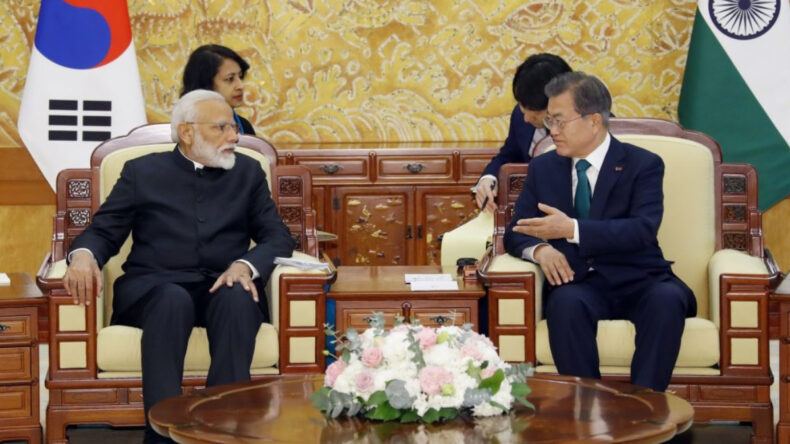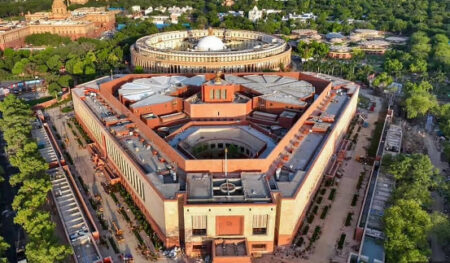Prime Minister Narendra Modi of India and South Korean President Yoon Suk Yeol engaged in productive bilateral talks during the G7 summit held in Hiroshima, Japan.
The goal of the meeting was to strengthen bilateral cooperation, notably in trade, investment, technology, and defense. Both leaders reaffirmed their commitment to advancing bilateral relationships as India and South Korea mark 50 years of diplomatic relations.
Focus on Trade, Technology, and Defense
Prime Minister Modi and President Yoon decided to expand their cooperation in a number of industries during their bilateral discussions. In order to strengthen economic ties and promote wider exchange of goods and services, trade and investment were highlighted as important areas of partnership. The decision-makers acknowledged the value of high technology and the production of IT gear, as well as the possibility of mutual gains in these industries.
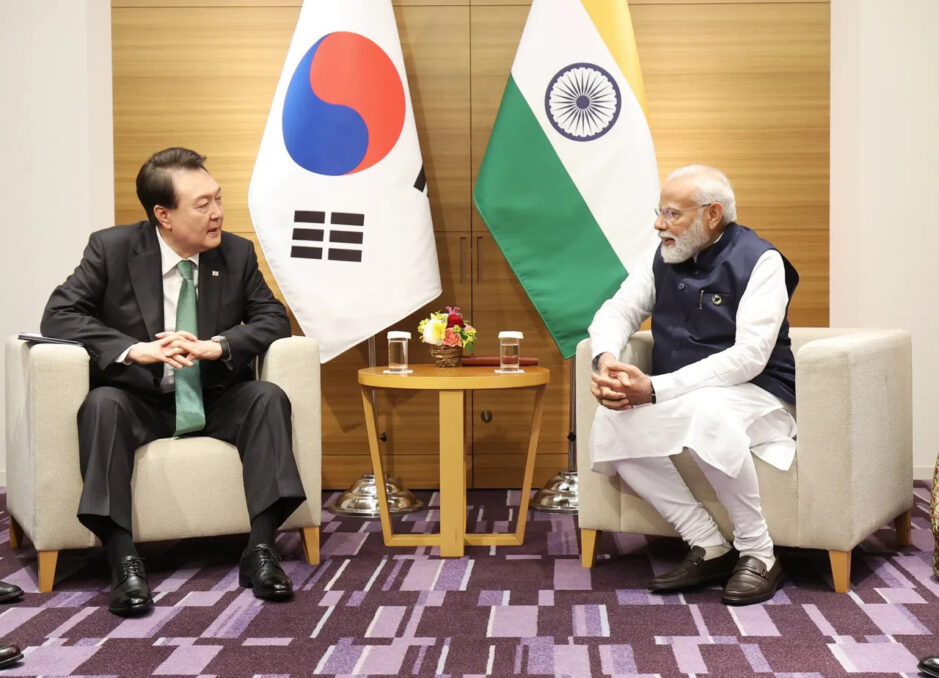
Defense cooperation was another crucial aspect of the discussions, with both nations emphasizing the need to enhance collaboration in this domain. The leaders recognized the significance of defense ties in maintaining regional security and stability. Additionally, the areas of semiconductor manufacturing and cultural exchanges were identified as potential avenues for deepening cooperation.
Addressing Regional Security and the Indo-Pacific
The leaders also discussed South Korea’s Indo-Pacific strategy and India’s G20 leadership. India plays a significant role in determining the direction of international economic policies as the G20’s current president. The conversations probably focused on India’s goals and plans for the G20 presidency, such as promoting economic growth, sustainable development, and tackling global issues.
South Korea launched its Indo-Pacific Strategy in December 2022, highlighting the country’s commitment to the region’s stability and prosperity. In light of China’s rising military activities and territorial claims in the South China Sea, multiple world powers, including the United States and India, have emphasized the importance of maintaining a free, open, and thriving Indo-Pacific. The leaders likely exchanged views on South Korea’s strategy and explored possibilities for collaboration in ensuring regional security.
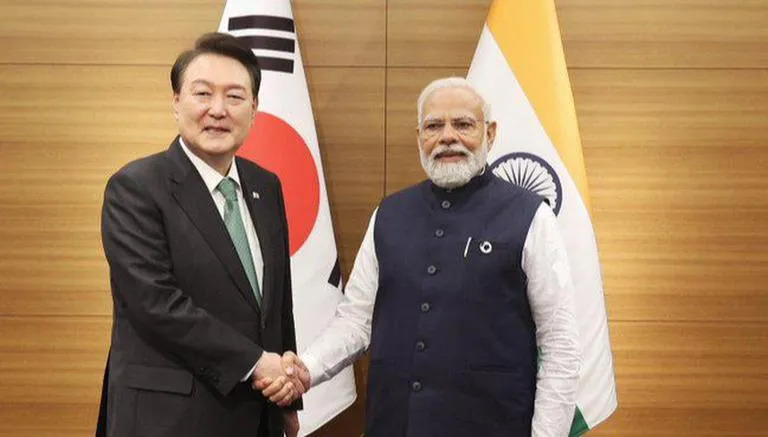
Strengthening India-South Korea collaboration was the main topic of conversation between Prime Minister Narendra Modi and South Korean President Yoon Suk Yeol during the G7 conference in Hiroshima. Deepening relations in trade, investment, high technology, defense, semiconductor production, and cross-cultural interactions were the main topics of conversation. As both nations commemorate 50 years of diplomatic ties, the leaders reaffirmed their dedication to continue enhancing bilateral relations.
Strengthening Collaboration for Regional Security
South Korea’s Indo-Pacific strategy reflects the shared commitment to maintaining a free, open, and thriving Indo-Pacific region amidst growing concerns over China’s military activities and territorial claims.
The relations between South Korea and India have witnessed significant growth and development over the past 10 years. South Korean companies have shown increasing interest in investing in India, particularly in sectors such as automobiles, electronics, and infrastructure. Companies like Hyundai, Samsung, LG, and Kia Motors have made substantial investments in India, contributing to job creation and technology transfer.
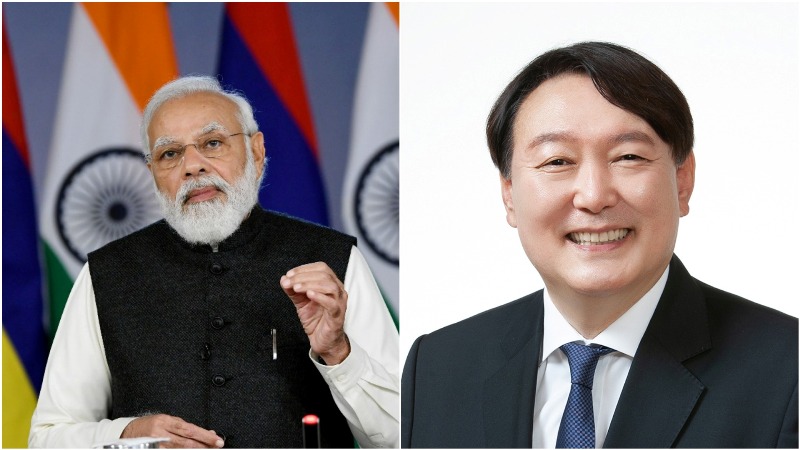
In 2011, the bilateral trade volume stood at around $18 billion, which grew to approximately $21 billion in 2020. South Korea has become one of India’s major trading partners and a significant source of foreign direct investment (FDI). The two nations have also signed several trade agreements and established mechanisms to facilitate economic cooperation. Additionally, South Korea has participated in various infrastructure projects in India, including the development of smart cities, industrial parks, and transportation infrastructure.
By leveraging their respective strengths and fostering deeper cooperation in trade, technology, defense, and culture, both nations can strengthen their strategic partnership and contribute to regional development and prosperity. As they navigate global challenges and opportunities, India and South Korea’s commitment to advancing bilateral relations will serve as a strong foundation for future cooperation and shared growth.







